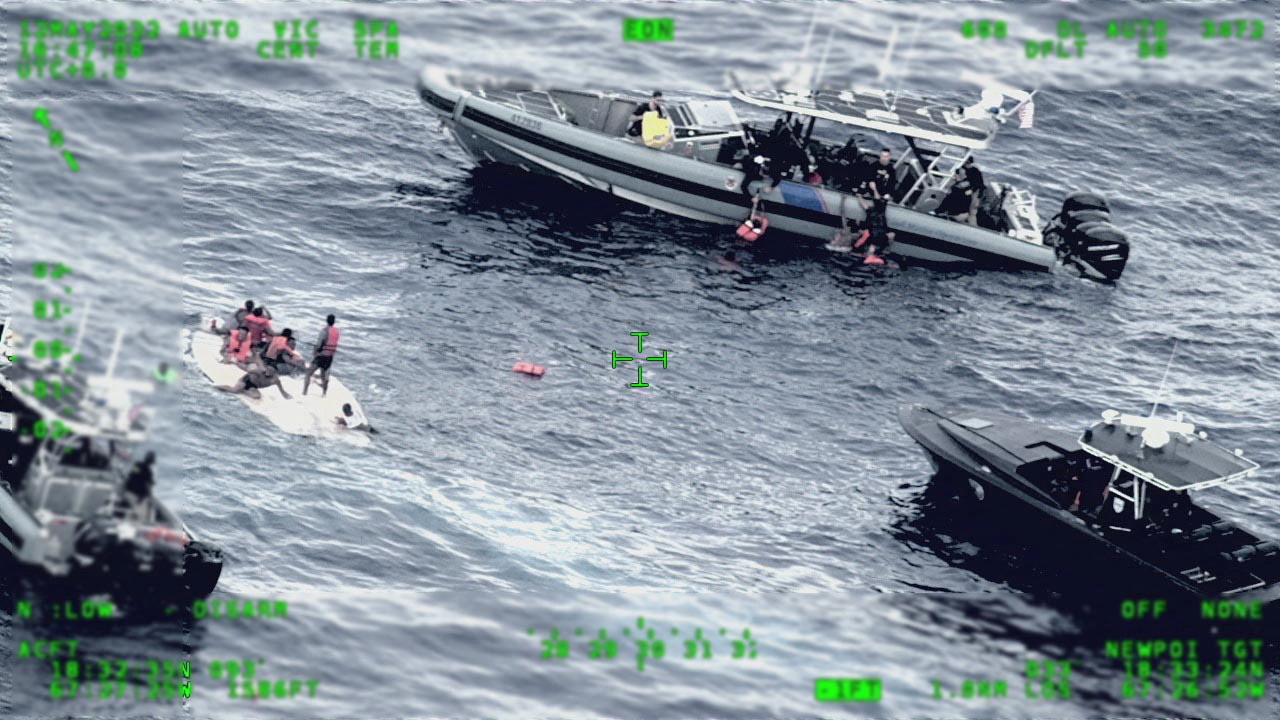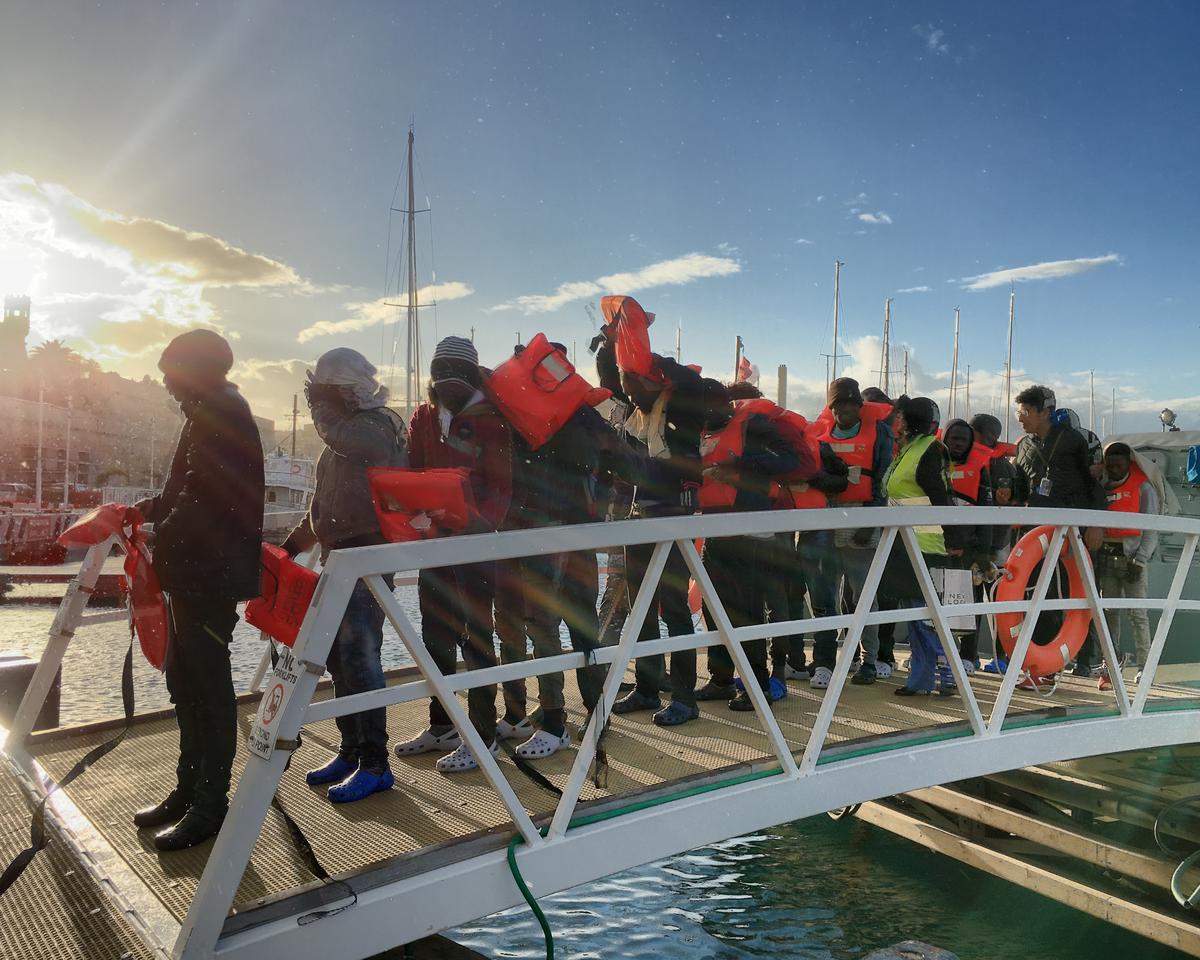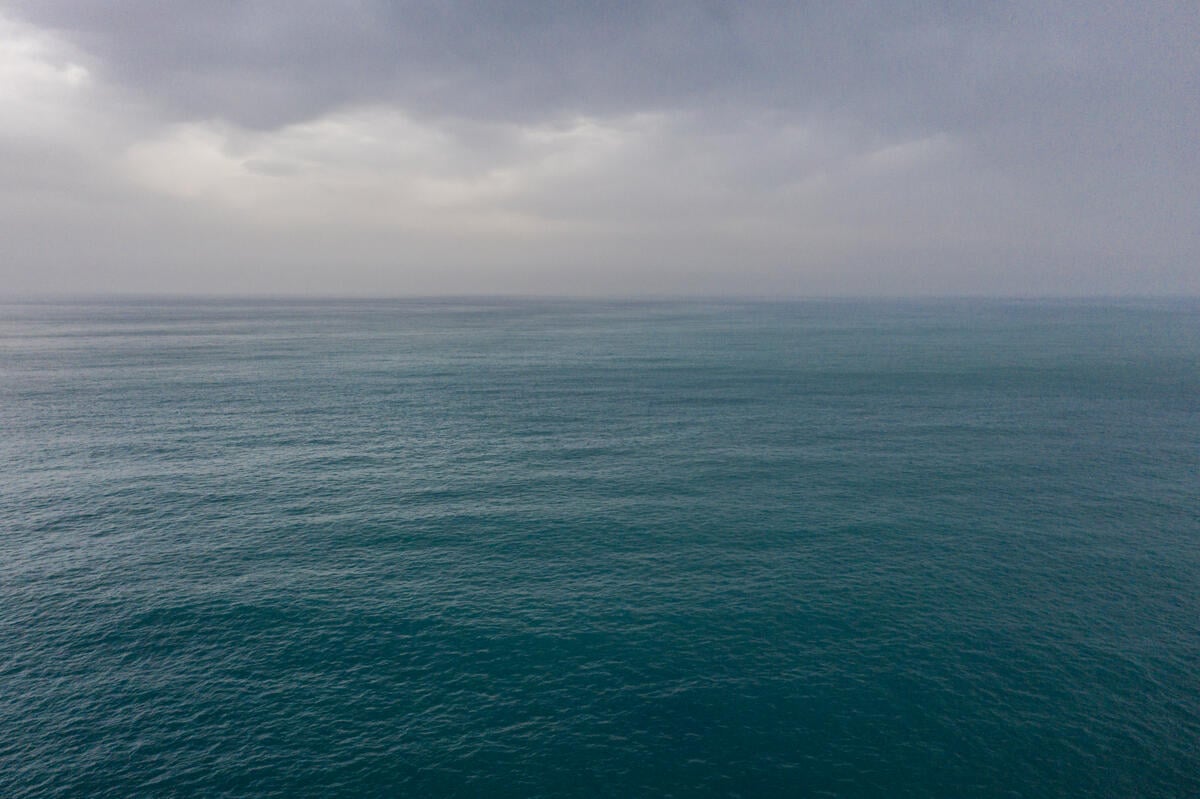Q&A: Working for refugees on Europe's outer borders
Q&A: Working for refugees on Europe's outer borders

GENEVA, May 18 (UNHCR) - The European Agency for the Management of Operational Cooperation at External Borders, better known by its French acronym of Frontex, coordinates the activities of border guards in countries on Europe's outer land and maritime borders. Established in 2005 with headquarters in Warsaw, it plays a key role in ensuring the security of the European Union (EU). But its work also brings the agency into close contact with UNHCR because many of those who enter Europe without passing through established border controls are people in need of protection.
Frontex and UNHCR have signed cooperation agreements and, since 2007, the refugee agency has assigned a liaison officer to Frontex to help ensure that border management complies with the international obligations of EU member states. Michele Simone is currently serving as UNHCR's senior liaison officer with Frontex in Warsaw. The Italian national spoke to Senior Communications Officer Sybella Wilkes. Excerpts from the interview:
Tell us about UNHCR's working relationship with Frontex?
UNHCR and Frontex have a working cooperation established through an exchange of letters, with regular meetings and capacity building initiatives contributing to this relationship. Frontex does not have a protection mandate, nor particular expertise in human rights, although its activities should be carried out consistently with the EU's international obligations. With the Frontex mandate review in 2010, we hope that our partnership can develop further, especially as regards more two-way information-sharing and more UNHCR involvement in operational aspects.
Are Frontex staff sufficiently trained to ensure that the basic rights of people intercepted at sea are respected?
The primary responsibility for the training of border guards lies with member states. UNHCR has contributed to some Frontex training with the aim of injecting a protection perspective into the work of border guards. Today, virtually all Frontex-led training activities for border guards include an asylum component. However, it remains difficult to evaluate the impact of training while information on operational activities at the borders, especially at sea, remains rather limited.
What would UNHCR like to see from Frontex during an operation at sea?
Frontex operations should ensure disembarkation of those intercepted at sea to a place where they are not only safe physically, but where their basic rights - including the rights to seek asylum and receive protection - are respected. This is spelled out in the recently adopted European Union guidelines for maritime border operations. In any event, the operations should anticipate that some of those intercepted at sea will be particularly vulnerable, notably unaccompanied children, women and torture victims. At this time, we believe there are not enough qualified staff at sea or land entry points to identify and support such vulnerable cases. To assist border guards in this identification process, UNHCR is currently discussing with Frontex the elaboration of ad hoc protection guidelines for some selected joint operations.
There are concerns about inconsistencies in asylum procedures in different states. Does this raise issues for Frontex?
Frontex only has a coordinating role in returns, with the responsibility lying with individual member states regarding the determination of asylum claims. One example of an inconsistency is the varying definition of "safe countries" by different member states. The fact that only two European countries are able to agree on a single safe country reinforces the message that individuals should only be returned after a full and fair examination of their claim.
Frontex says Greece faces the highest migratory pressure in Europe. How does UNHCR assess Greece's asylum system?
It is no secret that UNHCR, along with a number of other observers and courts in Europe, has reservations regarding access to asylum procedures in Greece. The bottom line is that there is a responsibility to ensure that people who may wish to apply for asylum are given the chance to do so under fair conditions.
Frontex is involved in repatriating people found not to be in need of international protection. Is UNHCR involved in this process?
We support the right of states to return people who, after a fair and effective examination of their claim, are found not to be in need of international protection. While we are not actively involved in returns from Europe, we could consider supporting states in this area on request and subject to resources, through monitoring or other appropriate activities.







